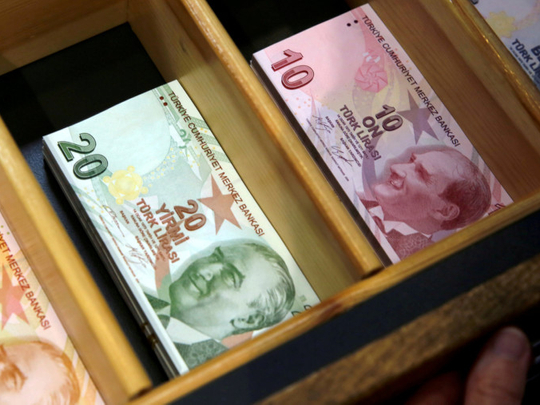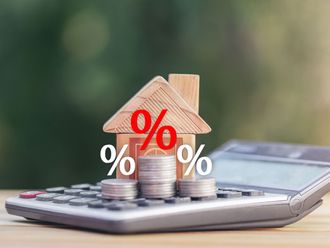
Dubai: The latest hikes in interest rates by central banks in both Turkey and Russia are expected to help Emerging Market (EM) currencies this week following a volatile month, analysts said.
The hikes could also provide a boost for India’s rupee, which hit a low of 72.69 against the US dollar last week.
Analysts said the Indian currency appears to be oversold and the fundamentals of the country’s economy are still strong.
“The Indian rupee does appear oversold at this point, and with investors gradually [becoming] more appealed towards taking on risk after the moves from the Russian and Turkish central banks in recent days, I do think it [rupee] will attempt to bounce bank over the days ahead,” said Jameel Ahmad, global head of currency strategy and market research at FXTM.
The rupee closed on Friday at 71.85 to the dollar, recovering slightly from its previous close of 72.19, but the currency was still trading at record lows, putting pressure on India’s central bank to act to support it.
Charles-Henry Monchau, managing director and chief investment officer of Al Mal Capital, said that an increase in prices, especially of petrol and diesel, which is a sensitive issue for India’s large middle class, creates “tremendous” pressure on the Reserve Bank of India (RBI) to act.
“There is pain in the short term, but the structural bull case on India remains intact. There is not much India’s central bank can do at this stage, but some relief on the US dollar, weaker global oil prices, and the Argentina and Turkey crises cooling down would certainly help,” he told Gulf News via email.
Away from currency markets, Monchau said investors should stay in US equities but “be prepared to become tactical on EM and commodities, as a major buying opportunity might be around the corner (in October or November).”
With mid-term elections coming up in about two months in the US, all eyes will be on whether President Donald Trump’s Republican party retains control over the House of Representatives and the Senate. Though that scenario currently seems unlikely, it could enable the Trump administration to double down on its fiscal policies, Monchau said.
“This could be very bullish for the markets – or US equities, at least. It could also be bearish for the US dollar, and thus lead to an EM equity rally,” he said.












